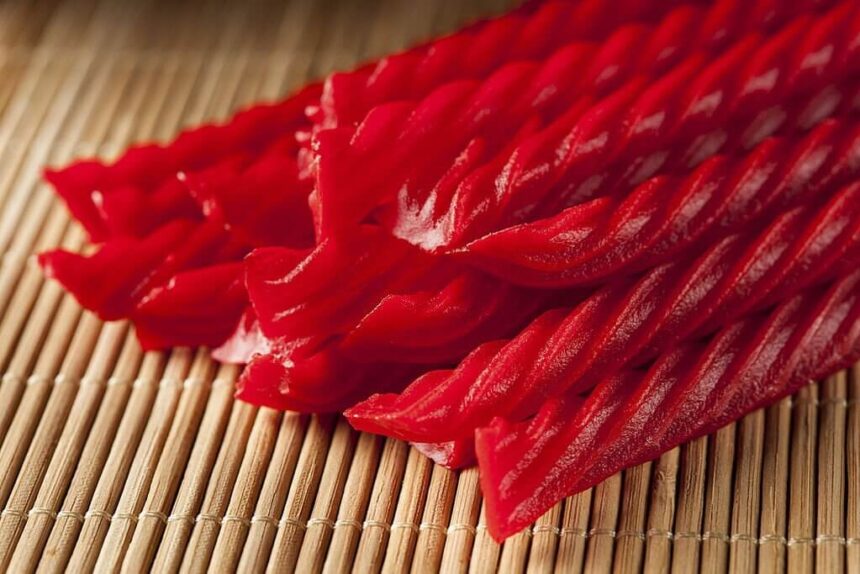When it comes to our furry feline companions, it’s essential to provide them with a balanced and appropriate diet to ensure their well-being. However, it’s not uncommon for cat owners to wonder about sharing their favorite snacks or treats with their pets. One popular snack that often raises questions is Twizzlers, the iconic twisted candy. In this article, we will explore whether it is safe for cats to consume Twizzlers, discussing the potential risks, implications, and alternatives for treating your beloved cat.
The Composition of Twizzlers
Twizzlers are a popular confectionary made primarily from sugar, corn syrup, and enriched wheat flour. They also contain artificial flavors, preservatives, and food colorings. While these ingredients may not be inherently toxic to cats, they do not align with their nutritional requirements.
Can Cats Eat Twizzlers?
No, it is not recommended to feed Twizzlers or any other candy or sweets to cats. Cats have specific dietary needs, and their digestive systems are not designed to process sugary and processed human foods.
Potential Risks of Cats Consuming Twizzlers
Digestive Issues
Twizzlers contain a high sugar content, artificial additives, and wheat flour, all of which can be difficult for cats to digest. Cats lack the necessary enzymes to break down complex carbohydrates like wheat flour, leading to potential digestive discomfort, including diarrhea or vomiting.
Digestive Issues
Obesity: Cats are prone to weight gain and obesity-related health issues. Twizzlers are calorie-dense and lack essential nutrients, making them an inappropriate dietary choice for cats. Frequent consumption of sugary snacks like Twizzlers can contribute to weight gain and increase the risk of obesity, diabetes, and other metabolic disorders.
Digestive Issues
Dental Problems: The sticky texture of Twizzlers can adhere to a cat’s teeth, promoting the growth of bacteria and plaque. This can lead to dental issues such as tartar buildup, gum disease, and tooth decay. Regular consumption of sugary treats can also exacerbate these problems.
Digestive Issues
Allergic Reactions: Cats can develop food allergies or sensitivities, and the artificial additives in Twizzlers may trigger adverse reactions. Common symptoms of food allergies in cats include itching, skin inflammation, gastrointestinal upset, and respiratory distress. While individual sensitivities can vary, it’s best to avoid exposing cats to potential allergens.
Alternatives to Twizzlers for Treating Cats
Digestive Issues
Cat-Specific Treats: Opt for commercially available treats specifically formulated for cats. These treats are designed to meet their nutritional requirements while providing a flavorful reward. Look for treats made from high-quality ingredients, preferably with a high protein content and minimal additives.
Homemade Treats
If you enjoy making treats for your feline friend, consider preparing homemade treats using cat-friendly ingredients. There are numerous recipes available that use cat-safe ingredients like cooked chicken, turkey, or fish. However, be cautious of using ingredients that may be harmful to cats, such as onions, garlic, or certain spices.
Catnip or Cat Grass
Many cats enjoy the effects of catnip, a plant known to elicit a euphoric response in felines. Catnip is safe for cats and can be used sparingly as a treat or added to toys for added stimulation. Another option is cat grass, which is a safe and healthy alternative for cats to chew on.
FAQ’s
Can a small amount of Twizzlers harm my cat?
While a small amount of Twizzlers may not immediately harm your cat, it is still not recommended. Twizzlers contain ingredients that are not suitable for cats, such as high sugar content, artificial additives, and wheat flour. Continuous exposure to such ingredients can lead to digestive issues, obesity, and other health problems over time.
What should I do if my cat accidentally eats Twizzlers?
If your cat accidentally consumes Twizzlers, monitor them closely for any signs of discomfort or digestive issues. Contact your veterinarian if you notice any abnormal behavior, vomiting, diarrhea, or other symptoms. They can provide guidance based on your cat’s specific situation.
Can cats eat licorice-flavored treats?
Licorice-flavored treats, including Twizzlers, typically contain artificial additives, sugar, and other ingredients that are not suitable for cats. It is best to avoid offering licorice-flavored treats to your feline companion. Stick to treats that are specifically made for cats to ensure their nutritional needs are met.
Are there any safe human foods that I can share with my cat as an occasional treat?
While it is generally best to offer treats specifically made for cats, there are a few safe human foods that you can share with your cat as an occasional treat. Some examples include small pieces of cooked plain chicken or turkey, plain cooked fish (without seasoning or bones), and small amounts of plain, unsalted cooked eggs. Always introduce new foods gradually and monitor your cat for any adverse reactions.
Can cats eat red licorice or other types of candies?
Red licorice, similar to Twizzlers, contains high sugar content and artificial additives that are not suitable for cats. Other types of candies often contain ingredients that can be harmful to felines, such as chocolate, xylitol (a sugar substitute), or certain flavorings. It’s best to avoid offering any candies or sweets to your cat and focus on treats specifically made for them.
Conclusion
While it may be tempting to share our favorite snacks with our feline companions, it’s crucial to prioritize their health and nutritional needs. Twizzlers, with their high sugar and additive content, are not suitable for cats and can lead to digestive issues, obesity, dental problems, and potential allergic reactions. Instead, opt for treats specifically formulated for cats or explore homemade options that cater to their dietary requirements. Remember, when it comes to treating your cat, their health and well-being should always be the top priority.



